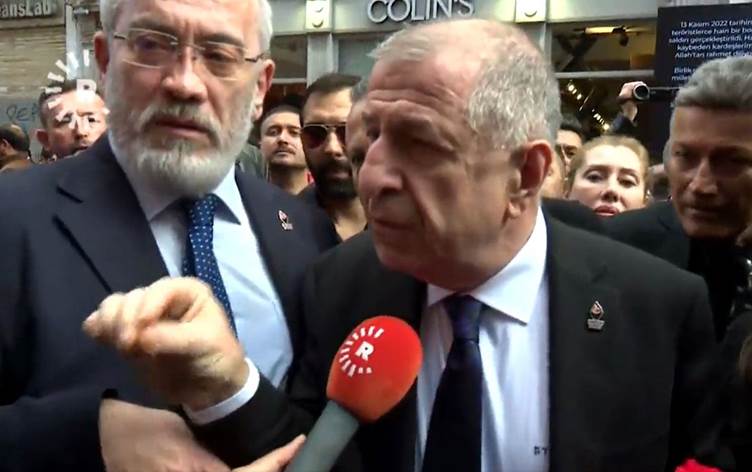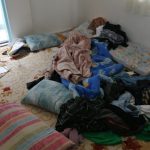Ümit Özdağ, leader of the far-right, anti-refugee Victory Party (ZP), has accused the Rudaw Kurdish news outlet of being “separatist” and said he would ban it if his party comes to power in the 2023 elections, the Rudaw news website reported on Tuesday.
Özdağ’s threat came while answering reporters’ questions on İstiklal Avenue, a busy pedestrian street in İstanbul where six people were killed and 81 were injured in an explosion on Sunday.
Rûdaw reporter Ömer Sönmez asked for comments from Özdağ, who went to the scene of the blast the next day and spoke to the press, about the claim that the bomber was lawyer and human rights defender Jiyan Tosun, which was made by ZP deputy chairman Adem Taşkaya shortly after the blast.
“I have nothing to say. He did what needed to be done,” Özdağ told Sönmez, referring to Taşkaya.
According to Rudaw, Sönmez then asked the ZP leader whether he would expel Taşkaya from the party due to the claim, prompting Özdağ to ask party officials who Sönmez worked for.
Upon receiving the answer “It’s Rudaw, sir, the [news] outlet of the [outlawed Kurdistan Workers’ Party] PKK,” Özdağ said, “Here’s what we’ll do. Rudaw TV won’t be able to enter the borders of Turkey under the rule of the Victory Party.”
Listed as a terrorist group by Ankara and much of the international community, the PKK has waged a deadly insurgency for Kurdish self-rule in southeastern Turkey since the 1980s.
When asked, “Why? Is it because [Rudaw] publishes [news] in Kurdish?” the far-right leader answered, “No, it’s because it’s separatist and works for the demise of Turkey.”
A day after the attack Taşkaya admitted to sharing the wrong information as to the identity of the bomber in a tweet, saying that he posted the information about Tosun “in the heat of” the attack and deleted it three minutes later “to avoid unjust treatment.”
Turkish police on the same day identified the suspected bomber as Ahlam Albashir, allegedly a Syrian national trained by the PKK, and detained her.
Kurds in Turkey are often pressured not to speak their native language. Authorities frequently claim that people speaking in Kurdish are actually chanting slogans in support of the PKK.
Turkish authorities have increasingly restricted the use of Kurdish in recent years. Hate crimes against Kurds for speaking their language have also increased.
The ruling Justice and Development Party (AKP) increased its crackdown on Kurds, especially after the collapse of Ankara’s reconciliation process with the PKK in 2015. President Recep Tayyip Erdoğan has equated Kurds with PKK terrorists in public remarks.
Prohibitions against the use of Kurdish in Turkey go back many years. Kurdish language, clothing, folklore, and names had been banned since 1937. The words “Kurds,” “Kurdistan” and “Kurdish” were among those officially prohibited. After a military coup in 1980, speaking Kurdish was officially forbidden even in private life.
Source: Turkish Minute



